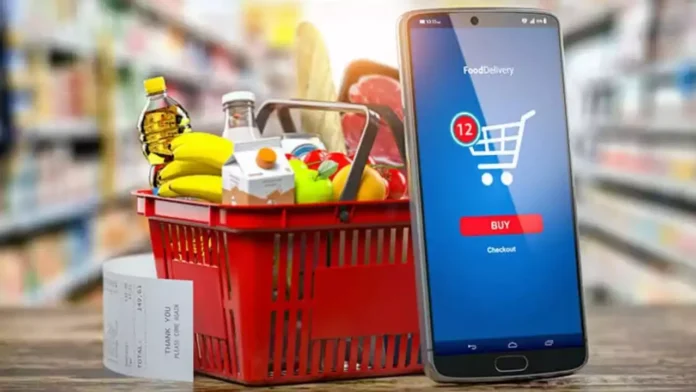Quick commerce companies are raising delivery weight limits per order as consumers shift to bulk monthly shopping from the 1st to the 10th of each month, replacing modern retail stores and traditional e-commerce platforms.
FMCG Firms Target Bulk Sales:
Major FMCG companies are keen to launch sales of such packs through quick commerce to capitalise on the sales opportunity.
Until now, most quick commerce operators delivered up to 15 kg, but industry executives indicate this is being increased to 35 kg or more. Swiggy Instamart has already begun offering 35 kg deliveries on bikes in select pin codes, and Blinkit has also raised its weight limit, according to executives.
Angshu Mallick, CEO of edible oil and staples company Adani Wilmar, said the company is negotiating with quick commerce firms to introduce larger monthly packs, including 26 kg of non-basmati rice and 5-litre oil jars. These items are increasingly being purchased from the 1st to the 10th of each month as part of consumers’ monthly shopping routines.
An ITC spokesperson noted that while consumers previously used quick commerce mainly for impulse, indulgence, or convenience purchases, their behaviour has shifted to include monthly grocery shopping. As a result, the company has significantly expanded its presence in the quick commerce sector.
“We have introduced specially curated large packs on quick commerce to match consumer preferences. Available options include the Aashirvaad atta 10 kg pack, Fiama soaps pack of 8, Dark Fantasy 300 g, and Marie Biscuits 1 kg packs,” the spokesperson said.
Emails sent to Swiggy, Blinkit, and Zepto went unanswered.
Quick Commerce Surges in FMCG Sales:
Quick commerce has emerged as the fastest-growing channel for FMCG companies, with consumers in major cities of 10-15 increasingly opting for it due to its convenience, faster and scheduled deliveries, and attractive discounts. For many FMCG firms, this channel now accounts for 30-40% of their total e-commerce sales. Tata Consumer Products recently informed analysts that nearly 35% of its e-commerce business comes from quick commerce.
Continue Exploring: Quick commerce grabs 35% share of FMCG online sales in FY24, doubling within a year
B. Krishna Rao, Senior Category Head at Parle Products, noted that as consumers increasingly make planned purchases through quick commerce, demand for large and mid-sized packs has risen, with these packs now representing 35% of the company’s total quick commerce sales. “We have also introduced quick commerce-specific packs priced between INR 40-70, including large packs previously only available through modern trade,” he said.
Executives noted that while consumers purchase large packs at the beginning of the month, they tend to switch to mid-sized and small packs in the latter half.
In its earnings release earlier this month, Albinder Singh Dhindsa, CEO of Blinkit, the quick commerce platform owned by Zomato, stated that quick commerce is experiencing growth due to increased consumption, a shift in market share from next-day delivery e-commerce, and a move away from mid-premium range modern retail in major cities.
Dhindsa explained, “We are not competing with kiranas or value-focused large retailers like DMart. The value-driven products available in these formats are challenging to replicate in our business, especially in staple categories where price sensitivity is higher, and we lack the ability to offer open SKUs like brick-and-mortar stores. Additionally, most kiranas provide personalised services, such as the khata system, which we are unfortunately unable to offer.”



